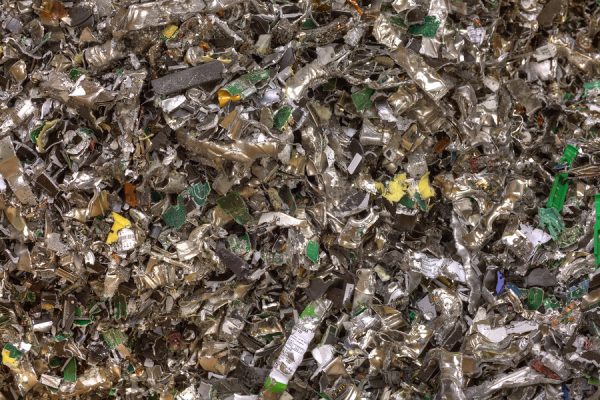
Like never before, data security is an issue that stands at the forefront of the business world. Recent spikes in data theft, illegal hacking and more have caused company decision-makers to take major cautionary steps to make data security a top priority.
In the world of electronic recycling, data security is also a major issue. Many recyclers, however, are not equipped to handle the rigors of protecting data even after electronic devices containing sensitive information have been sent for recycling.
That’s why it’s important to locate and hire an National Association for Information Destruction (NAID) certified recycler. NAID certification can ensure that your sensitive business information and technology is safe, even post-disposal.
What is NAID Certification?
NAID offers a regulated program for recyclers and private companies engaged in data destruction. Working with companies that are NAID certified means there’s an independent third party guarantee that the company is equipped to ethically and responsibly destroy sensitive information on electronic devices.
And, yes. Data destruction is an important part of electronics recycling.
More and more companies are attempting to secure the sensitive information on their devices by devoting vast amounts of their budgets to tighter data security measures. For many, this means ensuring that data stays safe even after it’s sent for storage or recycling.
Data thieves do not overlook the large numbers of devices in transit to destinations like recycling centers or even illegal dumping grounds, post disposal. Also, although the practice is illegal, a large number of devices sent for recycling are ending up in huge junk piles in developing countries where the risk of seeing sensitive information, such as social security numbers or credit card and bank information, fall into the wrong hands is extremely high.
The more protections a company has in place to guard against such oversights, the better. Working with a recycler who understands and has addressed these risks formally and professionally with NAID certification is key.
How A Recycler’s NAID Certification Can Benefit Your Company
Keep in mind that not every recycler is interested in or aware of the need to ensure and guarantee complete data destruction as part of the e-waste recycling process. However, the recyclers that do prioritize data destruction and certification are special, and their close attention to this contemporary issue is something to look out for.
As a company working with an NAID certified recycler, expect a few benefits. First, there is peace of mind from knowing your recycler’s data destruction policy will be put to the test by NAID experts.
The Association conducts regulatory unannounced or scheduled audits on member companies throughout each certification year. Its attention to the regulatory laws and compliance measures across a number of industries, such as HIPAA and FACTA, make the certification process extremely efficient and comprehensive.
Depending on the type of business a company engages in, it may be difficult to abide by all the various data destruction laws and regulations and equally difficult to ensure compliance in effective ways. Working with a NAID certified recycler can ensure that information stored on devices is disposed thoroughly and completely in accordance with industry-specific laws and regulations.
Having an NAID certified recycler also offers cost benefits. In most cases, failure to ensure that stored and sensitive data is properly disposed and destroyed brings on hefty fees and fines issued by the government or other regulatory agencies. The costs of negligence can also include litigation and damage control scenarios – not to mention damage to company reputation.
An NAID certified recycler can save thousands of dollars for companies struggling to handle the complex necessities of data destruction and legal compliance on their own.
What Must Recyclers Demonstrate To Receive NAID Certification?
NAID’s AAA certification program is comprehensive and encompasses a variety of tests and requirements concerning company plants and procedures for data destruction. Each member company attempting to become certified must annually meet these requirements, as well as successfully pass planned and unannounced audits throughout the year.
Written policies must be in place concerning the member company’s data destruction policy. This means recyclers must show there is a written procedure for data destruction available to NAID’s Certification Review Board on a regular basis.
Secure plants and workers are essential for NAID certification. This includes requiring that all workers undergo security and background checks and maintain two-way communication if in transit with stored devices. It also requires the use and inspection of alarms and closed circuit cameras in the data destruction areas of the plant.
Tracking is also an important aspect of NAID certification. Member companies must keep track of and record hard drive serial numbers, for instance, and ensure this information is delivered to clients. Also, workers are required to wear photo ID when entering and leaving secure data destruction areas and a log must be kept of traffic into and out of these areas.
How to Locate an NAID Certified Recycler
Clearly, top security is the name of the game with any NAID certified recycler. The only question that remains is how to locate a recycler committed to ensuring your company’s data security.
Visiting the NAID website can help. The site features a company member locator, providing contact information for NAID certified companies in your area. In addition, the site can also point you to NAID certified compliance experts and more.
Hire a Certified NAID Recycler Today
If you’re looking for peace of mind and cost savings when it comes to data destruction, consider hiring a NAID certified recycler. NAID certification can be a reliable source of confidence in knowing you’ve met industry-specific legal and regulatory requirements and a great way to work with a recycler who is committed to protecting your sensitive data. It’s definitely a beneficial factor to keep your eye on when choosing a “best fit” recycler for your company’s data destruction needs.